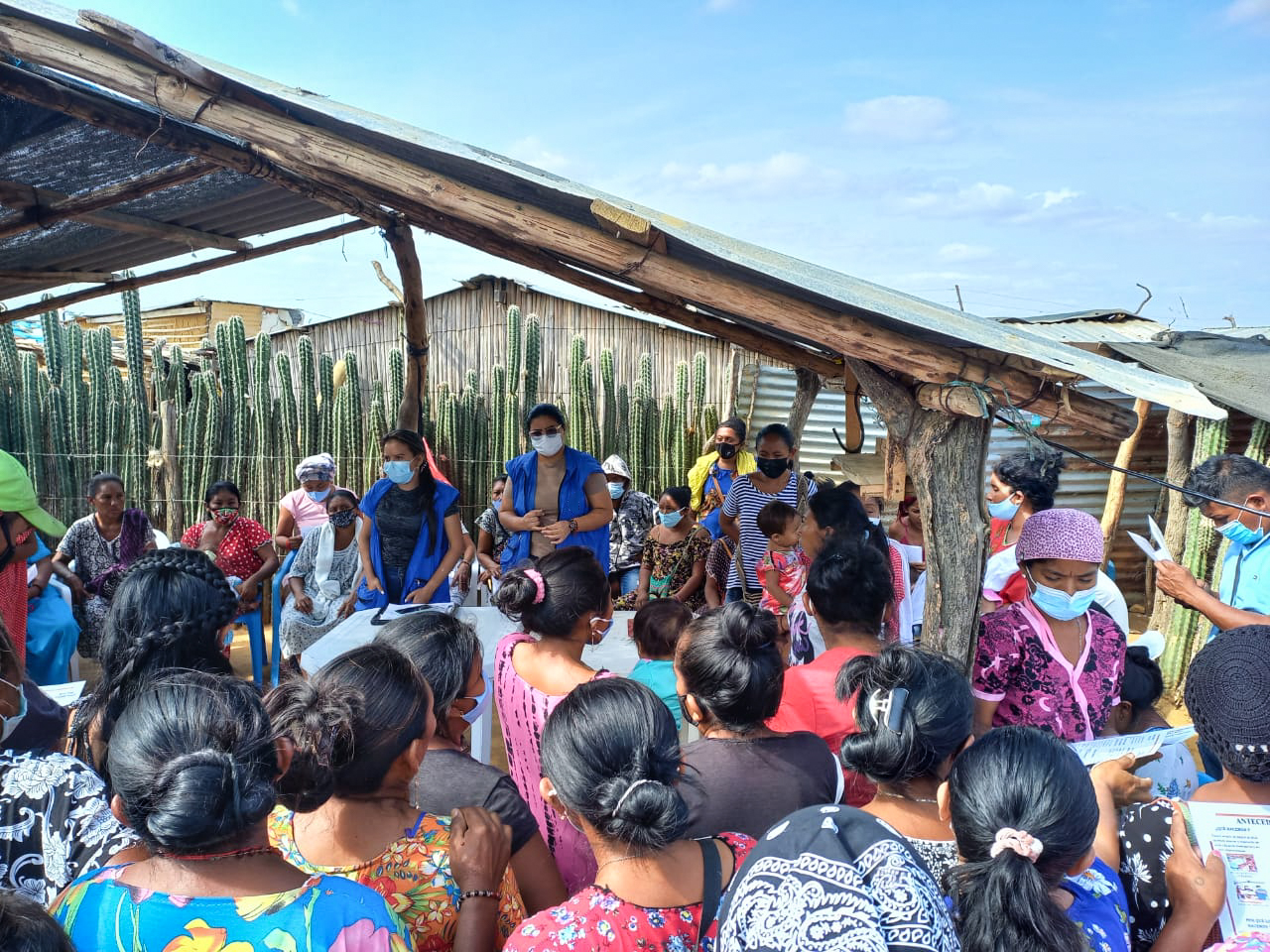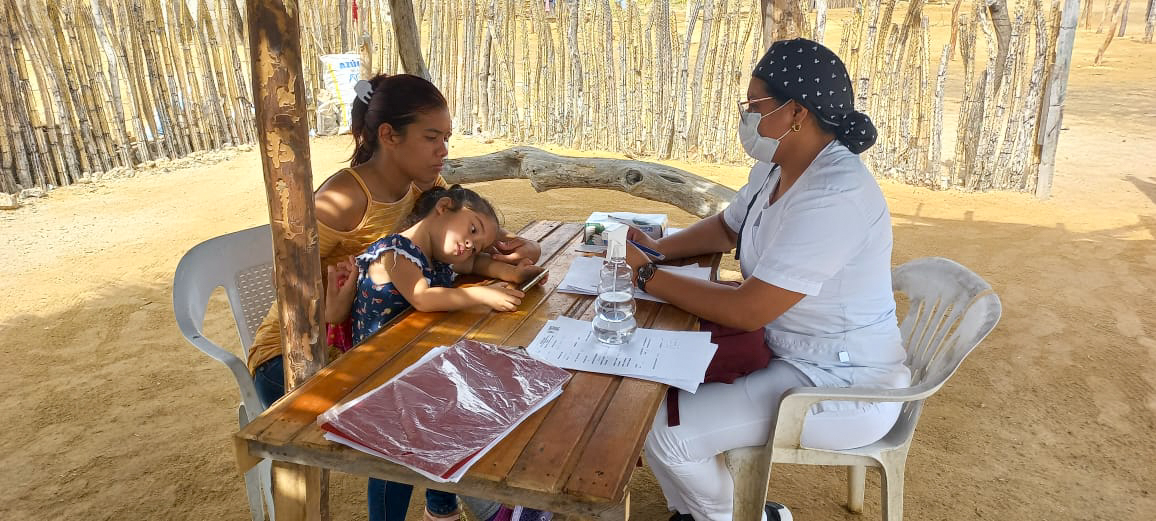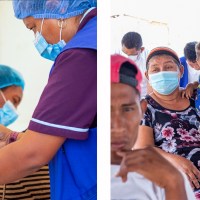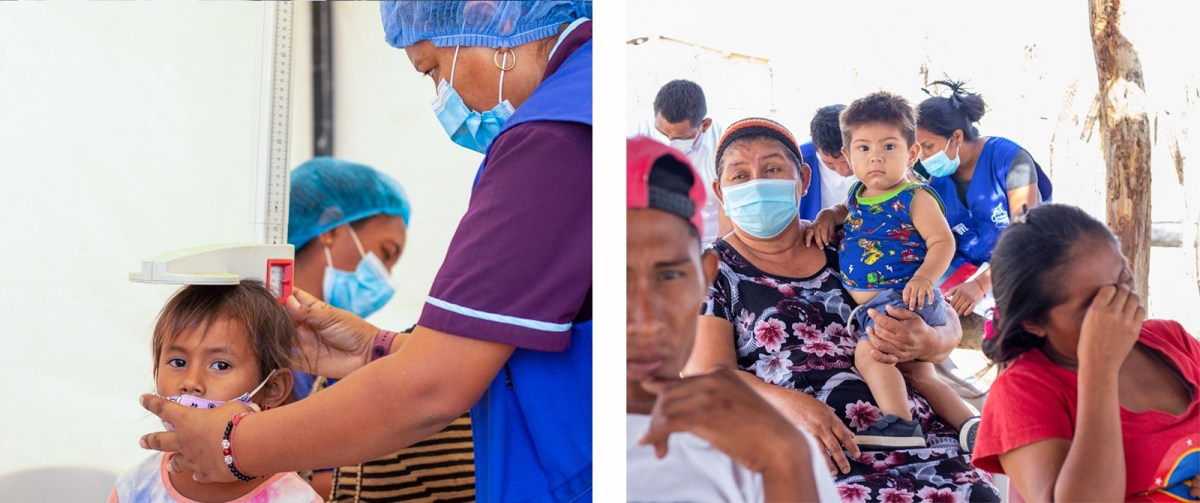Your daughter is dangerously malnourished. You realize it slowly, as you hold your listless child on your lap. You think about all of the children you’ve known who died because they couldn’t get enough nutritious food to eat, or clean water to drink—who slowly became a mere shadow of themselves, and then not even a shadow.
You’re gathered with other moms and grandmoms from the village, listening as community health workers teach you how to recognize if your child is malnourished. You check off little boxes in your mind as they run down the list:
- not growing or gaining weight, or going backward and losing weight
- being unusually irritable, slow or anxious, not their usual selves
- low energy, and getting tired more easily than the other kids.
You’re not surprised to learn what might be making your child so sick—everyone here struggles to get what they need to be well. But at this moment, hearing essential information in your own language, you dare to hope that everything will somehow work out.

Needs in La Guajira, Colombia
The Guajira region of Colombia is one of the most vulnerable in the country. In lists that count statistics of economic hardship, infant malnourishment, and lack of clean drinking water, it’s always near the top of the list.
The indigenous population (historically belonging to both Colombia and Venezuela) has paid a terrible toll for the lack of resources here: 31% of the infants who die in Colombia, are lost to families in La Guajira. In just eight years between 2010-2018, 4770 Wayuu children died due to malnutrition.
There are plenty of reasons for the struggles here. Local corruption, Latin America’s largest open-pit coal mine which has polluted water sources, and climate change accelerating the desertification of the area.
In addition, there are few public health centers providing medical care for rural families. Those centers are difficult to get to because it means traveling through areas thick with smugglers and drug traffickers. And if you do manage to reach the health centers, few medical professionals speak the local language, Wayuunaiki. And the care isn’t available to the large number of migrants from Venezuela.
It’s a crisis situation. A crisis we’re responding to together.

A Sustainable Response
We’ve joined the local community and a partner organization to pilot a project introducing integrated health to the region, for migrant populations and locals alike. What do ‘integrated health’ solutions look like?
-Providing high-quality health care services to migrant and local community members
including for those with prioritized chronic diseases, and education for maternal and child health care (especially for children under 5 years old).
-In addition, training migrant and local residents as volunteer Community Health Workers, to increase access to health services and healthcare education within their communities, in their own language. Training covers topics including comprehensive early childhood care and gender-based violence.
What does that mean? More families in the Guajira region will have what they need to be well.
Bringing Help That Lasts for Decades to Come, Together.
Lucia lives in the Guajira region, and we met her when she accessed this pilot project for health services. She is one of the vulnerable residents this program was designed for. She didn’t previously have access to health care or much drinking water. Now, she has medical attention including whatever prescriptions she might need, health care education, and a clean drinking water supply for a month at a time.
For Lucia, she tells us that despite their harsh living conditions, she’s glad for this program. It makes her feel listened to, valued, and dignified.
For those trained as Community Health Workers, they get valuable training, support in the form of monthly food packs, and the chance to work in their own language.
And for every child slowly becoming a shadow of their former selves, they have a chance at living. Reliable health information and medical care give them the chance to grow normally: physically and intellectually.


